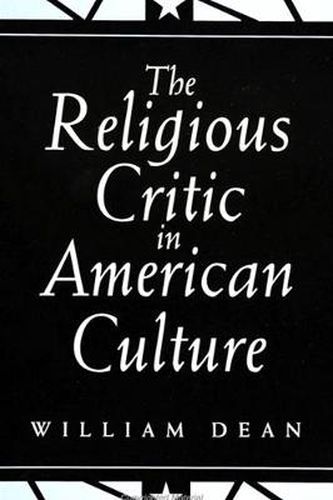Readings Newsletter
Become a Readings Member to make your shopping experience even easier.
Sign in or sign up for free!
You’re not far away from qualifying for FREE standard shipping within Australia
You’ve qualified for FREE standard shipping within Australia
The cart is loading…






This book provides a new rationale for religious criticism in American society. First, Dean shows why today’s academic intellectuals are relatively indifferent to questions of meaning in America, pointing to the loss of American exceptionalism, the professionalization of the academy, and the rise of post-structural criticism. He then shows how intellectuals may reclaim a prophetic role by offering a new theory of the nature of religious thought. Tracing this theory to a twentieth-century emphasis on conventions, Dean provides a way to understand how imaginative social constructions can become active historical conventions, with real historical force. He suggests that the sacred itself begins as an imaginative construct and becomes a convention, thus working as an active, living force in history. Finally, Dean argues that religious critics must now reclaim a responsibility for shaping their society’s sacred conventions.
$9.00 standard shipping within Australia
FREE standard shipping within Australia for orders over $100.00
Express & International shipping calculated at checkout
This book provides a new rationale for religious criticism in American society. First, Dean shows why today’s academic intellectuals are relatively indifferent to questions of meaning in America, pointing to the loss of American exceptionalism, the professionalization of the academy, and the rise of post-structural criticism. He then shows how intellectuals may reclaim a prophetic role by offering a new theory of the nature of religious thought. Tracing this theory to a twentieth-century emphasis on conventions, Dean provides a way to understand how imaginative social constructions can become active historical conventions, with real historical force. He suggests that the sacred itself begins as an imaginative construct and becomes a convention, thus working as an active, living force in history. Finally, Dean argues that religious critics must now reclaim a responsibility for shaping their society’s sacred conventions.